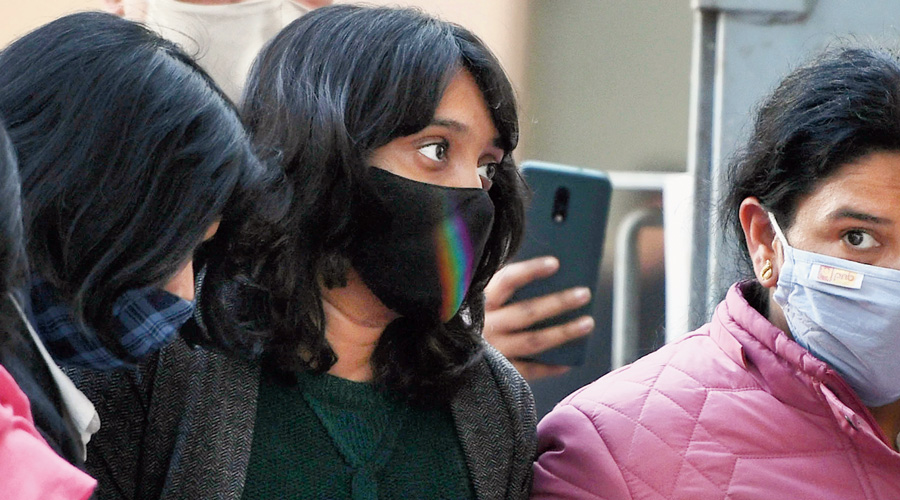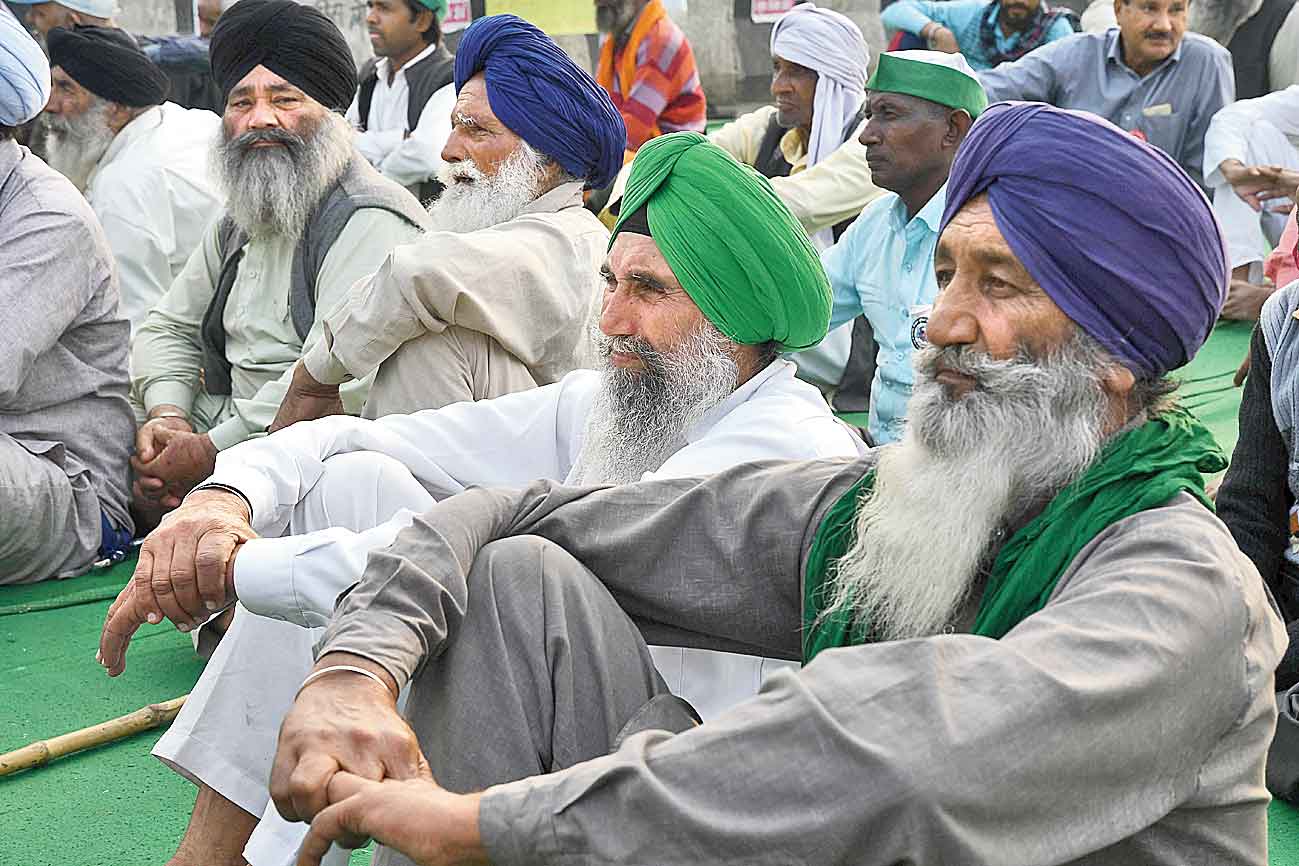The United Nations High Commissioner for Human Rights has said the charges of sedition slapped on journalists and activists in connection with the farmers’ protests and the attempts to curb freedom of expression on social media in India are “disturbing departures from essential human rights principles”.
Michelle Bachelet brought up the matter on Friday while updating the 46th session of the Human Rights Council (HRC) on rights issues in more than 50 countries. In two paragraphs on India, she flagged the farmers’ movement and the situation in Jammu and Kashmir.
Her intervention comes a few days after external affairs minister S. Jaishankar, in his speech at the ongoing HRC session, stressed the need to respect the principles of non-interference in internal affairs and national sovereignty.
“Continued protests by hundreds of thousands of farmers highlight the importance of ensuring laws and policies are based on meaningful consultations with those concerned,” Bachelet said, in an oblique reference to the criticism that the three farm laws were enacted without proper discussion.
“Charges of sedition against journalists and activists for reporting or commenting on the protests, and attempts to curb freedom of expression on social media, are disturbing departures from essential human rights principles,” she continued.
Bachelet expressed hope that talks between the government and the farmer leaders would yield a solution. “I trust that ongoing dialogue efforts by both sides will lead to an equitable solution to this crisis that respects the rights of all,” she said.
On Kashmir, Bachelet said restrictions on communications and clampdown on civil society activists remained a concern.
“Despite recent restoration of 4G access for mobile phones, the communications blockade has seriously hampered civic participation, as well as business, livelihoods, education, and access to health care and medical information. Raids against human rights defenders in October and November exemplify the continued restrictions on civil society, and resulting impact on the rights of the people of Kashmir to impart and receive information, and to engage in free, open debate on government policies affecting them,” she noted.
Last week, special rapporteurs of the HRC had voiced concern that the constitutional changes made in Jammu and Kashmir could undermine minorities’ rights. This had drawn a sharp response from the government, which termed the conclusions as “inaccurate assumptions” and “deliberately timed” to coincide with the visit of foreign envoys to the Union Territory.
Swap denial
The external affairs ministry has rebutted the reported contention of UN rapporteurs that Christian Michel, accused in the VVIP chopper case, had been extradited from the UAE in a “de facto swap” for India’s capture and return of Sheikha Latifa, the daughter of Dubai’s ruler Sheikh Mohammed bin Rashid Al-Maktoum, after she attempted to flee her homeland.
According to the AFP report, the United Nations Working Group on Arbitrary Detention has called for the British middleman’s immediate release, arguing that he was being detained arbitrarily.
Reacting to the report, the ministry said in a statement: “We regret that the conclusions drawn by the Working Group are based on limited information, biased allegations from an unidentified source and on an inaccurate understanding of India’s criminal justice system.
“The extradition was done entirely in accordance with the provisions of the Extradition Treaty signed between two sovereign States. The arrest and subsequent custody were done as per the due process of law and cannot be considered arbitrary on any grounds.”
Further, according to India, at no time was Michel denied his rights to legal counsel or a fair hearing.
“The fact that he has been able to approach courts on multiple occasions including the higher judiciary is itself proof of this. There have also been no restrictions on consular access by the authorities. He has been treated at par as other detainees and provided all facilities by the prison authorities as per rules,” the statement said.











